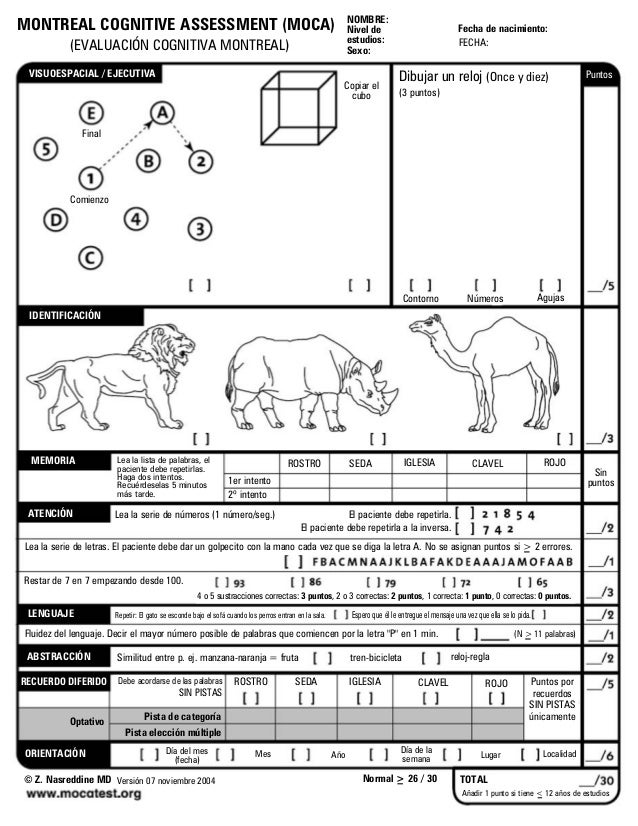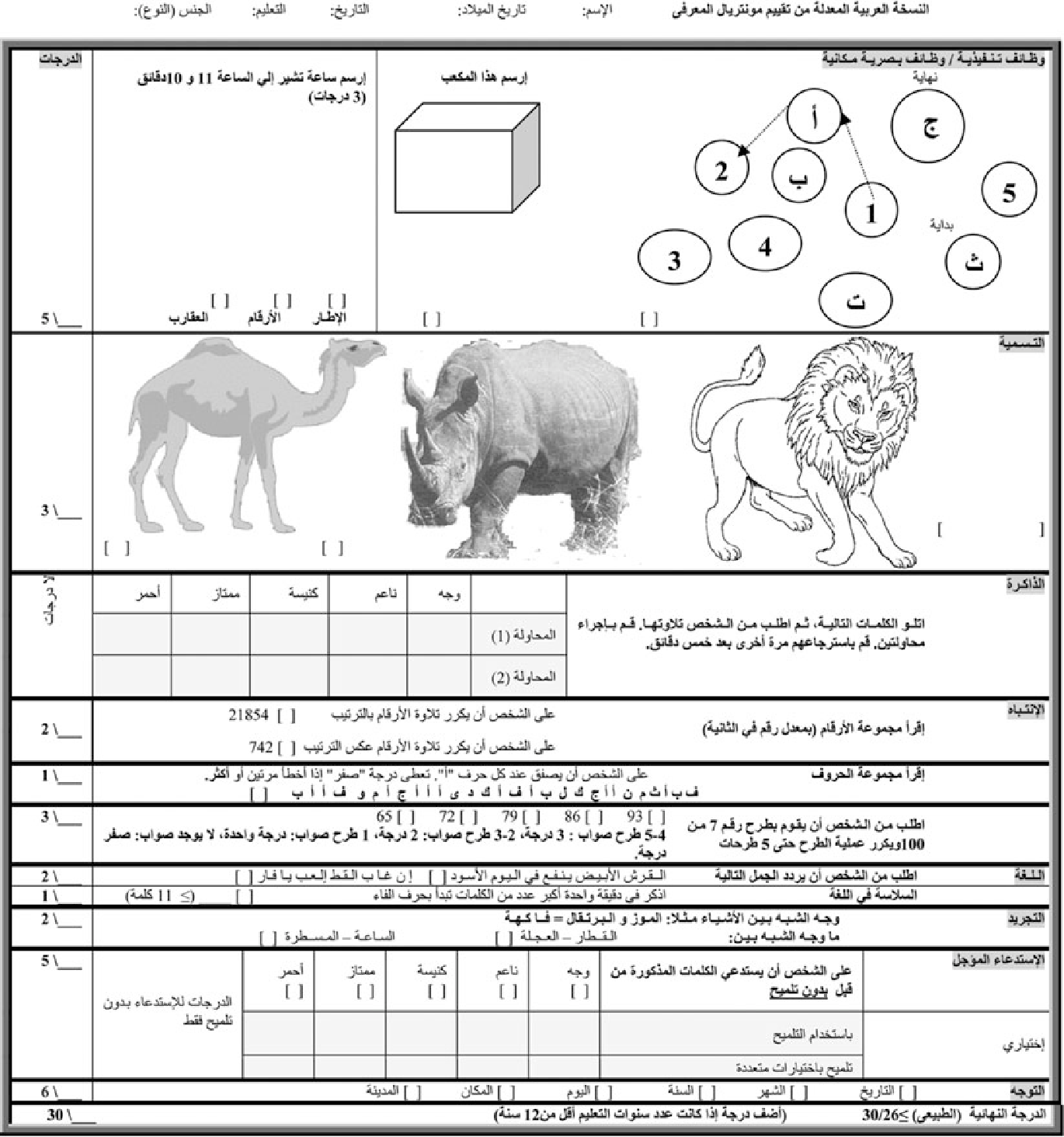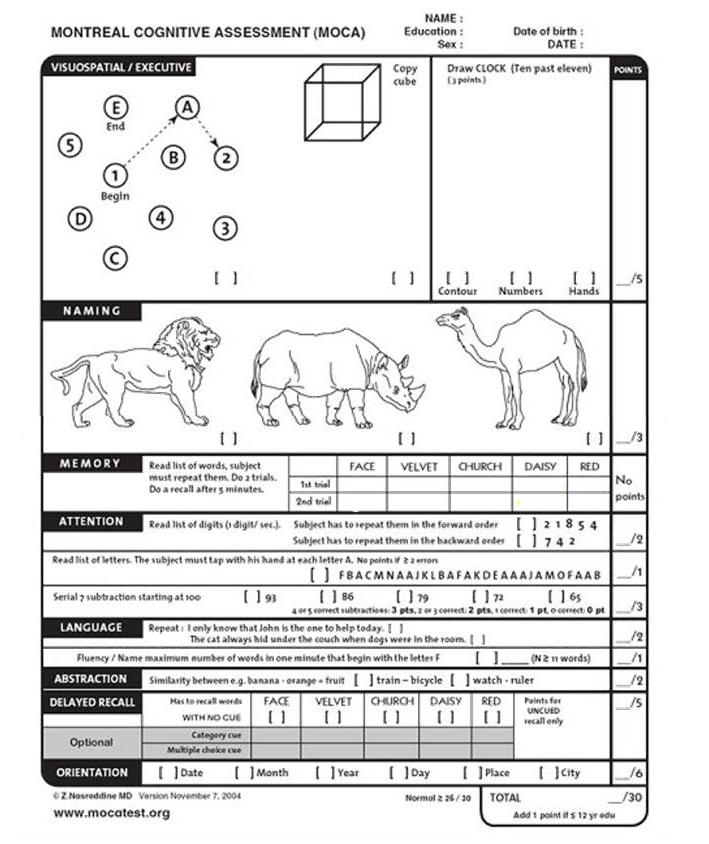Today, I would like to talk about an important cognitive assessment tool known as the Montreal Cognitive Assessment (MoCA) test. This test is widely used to evaluate an individual’s cognitive abilities and screen for possible cognitive impairment. Whether you are a healthcare professional, caregiver, or simply interested in learning more about cognitive health, the MoCA test is something you should be familiar with.
What is the MoCA test?
The MoCA test is a brief but effective screening tool that assesses several cognitive domains, including attention, memory, language, visuospatial abilities, and executive functions. It consists of several tasks and questions that challenge various aspects of cognitive functioning.
 One of the advantages of the MoCA test is that it can detect mild cognitive impairment, which may be an early sign of dementia or other cognitive disorders. It is also sensitive to cognitive changes that may occur due to conditions such as Alzheimer’s disease, Parkinson’s disease, or stroke.
One of the advantages of the MoCA test is that it can detect mild cognitive impairment, which may be an early sign of dementia or other cognitive disorders. It is also sensitive to cognitive changes that may occur due to conditions such as Alzheimer’s disease, Parkinson’s disease, or stroke.
Why is the MoCA test important?
The MoCA test has gained popularity and recognition as a reliable cognitive assessment tool due to its ability to detect cognitive impairment in the early stages. Early detection is crucial to ensure timely interventions, treatment, and support for individuals who may be at risk of developing cognitive disorders.
 Furthermore, the MoCA test can provide valuable information for healthcare professionals, enabling them to make accurate diagnoses and develop personalized treatment plans. It can also help track the progression of cognitive decline over time, allowing for timely adjustments to the care and support provided.
Furthermore, the MoCA test can provide valuable information for healthcare professionals, enabling them to make accurate diagnoses and develop personalized treatment plans. It can also help track the progression of cognitive decline over time, allowing for timely adjustments to the care and support provided.
It is important to note that the MoCA test is not designed to definitively diagnose specific cognitive disorders, but rather to screen for potential cognitive impairment. If the test results indicate cognitive difficulties, further evaluation by a healthcare professional specializing in cognitive health is recommended.
How to administer the MoCA test?
The MoCA test is typically administered by a healthcare professional, such as a neurologist, geriatrician, or psychologist. However, there are printable versions of the test available online for self-administration or caregiver use.
 When administering the MoCA test, it is important to create a quiet and distraction-free environment. The test should be conducted in a face-to-face setting, and the individual should be given clear instructions for each task or question.
When administering the MoCA test, it is important to create a quiet and distraction-free environment. The test should be conducted in a face-to-face setting, and the individual should be given clear instructions for each task or question.
Some of the tasks in the MoCA test include drawing specific shapes, memorizing a list of words, identifying different animals, and performing calculations. Each task assesses a different cognitive domain, allowing for a comprehensive evaluation of cognitive abilities.
Conclusion
In conclusion, the Montreal Cognitive Assessment (MoCA) test is a valuable tool in the assessment of cognitive abilities. Its sensitivity to mild cognitive impairment and various cognitive domains makes it a reliable screening tool for cognitive impairment and potential early signs of cognitive disorders.
If you suspect that you or someone you know may be experiencing cognitive difficulties, it is essential to consult with a healthcare professional and consider administering the MoCA test. Early detection and intervention can significantly impact the management and treatment of cognitive disorders, ensuring a better quality of life for individuals and their caregivers.
